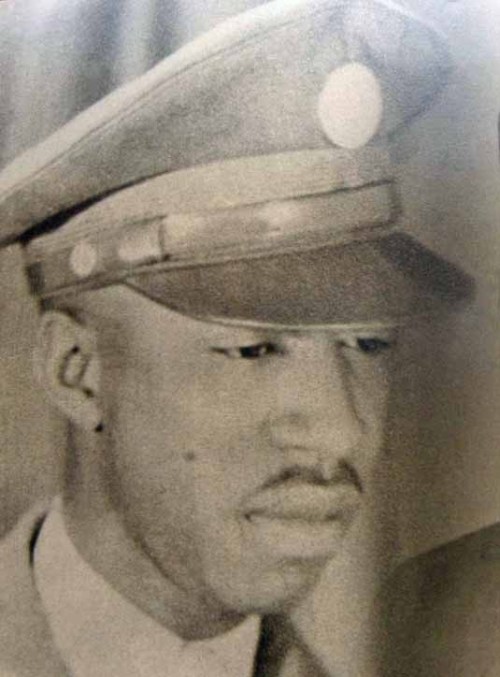Imprisoned for Wanting an Education — The Story of Clyde KennardBorn in Hattiesburg, Mississip
Imprisoned for Wanting an Education — The Story of Clyde KennardBorn in Hattiesburg, Mississippi in 1927, Clyde Kennard was certainly a young man whose was destined for great things as he was a man of character well beyond his years. He graduated near the top of his class in high school while helping his injured sister. He served honorably in the Korean War as an elite US Army paratrooper. He was a businessman who ran his own chicken farm and also taught sunday school. So what could possibly get a person like this in trouble with the law? Well, he was black in the Jim Crow South, and he wanted an education.After returning from the Korea War, Kennard enrolled at the University of Chicago in 1954. He completed his junior year, but moved back to Mississippi to help his father, who had been disabled in an accident. Kennard wanted to enroll at the nearby Mississippi Southern College to continue his education while caring for his father and running his chicken farm, but at the time segregation was still in effect and Mississippi Southern was bared to black students. Undeterred, Kennard decided to challenge the law by applying to Mississippi Southern regardless of segregation. He was dogged in his quest, petitioning politicians and government agencies to grant his requests, all of which were denied. Mississippi Governor James P. Coleman even offered to have the state pay his tuition if he went elsewhere, an offer which Kennard refused. Clyde Kennard was becoming a thorn in the Mississippi State Government’s side, especially at a time when the Civil Rights Movement was gaining steam. Thus, the State of Mississippi decided to take some extralegal steps to silence Kennard’s activism.The Mississippi State Sovereignty Commission was a state agency created in 1956 whose purpose was to “protect the state from Federal encroachment”. When it came to Federal encroachment, the big issue of the day was civil rights, hence most of the agency’s activities focused on defending segregation and Jim Crow Laws. In 1959 the Sovereignty Commission decided that they would solve the “Kennard problem” by framing him for a crime and having him imprisoned. On Sept. 15th, 1959, he was arrested for smuggling illegal booze, supposedly after being found with 5 pints of whiskey, although the police later “lost” the evidence. Kennard was forced to pay a $600 fine. His credit and business was also ruined when the Sovereignty Commission organized a local boycott against him. Then Kennard was arrested as a co-conspirator for the theft of a $25 bag of chicken feed. The thief, Johnny Lee Roberts, had been coerced by the Sovereignty Commission to name Kennard as an accomplice. Kennard was found guilty by an all white jury after a mere 10 minutes of deliberation. He was sentenced to seven years hard labor at Parchman Penitentiery, then one of the toughest prisons in the country. Kennard was essentially made a slave, forced to work on chain gangs picking crops at local farms or conducting other forms of hard labor. On the other hand, Roberts was sentenced to only five months of probation.Two years into his sentence Kennard was diagnosed with colon cancer, at the time a diagnosis which meant certain death. It was recommended that Kennard either be transferred to a hospital or released and allowed to return home. Instead authorities sent him back to Parchman Prison where he continued his sentence as a laborer. Finally in 1963 Kennard’s condition deteriorated to the point that he could no longer work. After aggressive lobbying by civil rights activists, Gov. Ross Barnett agreed to release Kennard. He died five months later.The Sovereignty Commission was disbanded in 1977. Its records were made public in 1998, revealing a shocking legacy of racism and corruption. In its history the Sovereignty Commission had profiled 87,000 people and was complicit in the murder of three civil rights activists. Among the records were files on Clyde Kennard, detailing how the Commission had conspired to have him arrested on bogus charges. Other plans were made to have him killed in an accident or car bombing. In 2006 Clyde Kennard was granted a retrial in absentia and exonerated of all crimes. -- source link
Tumblr Blog : peashooter85.tumblr.com
#history#civil rights#racism#mississippi#prison#injustice#sad#education#clyde kennard


